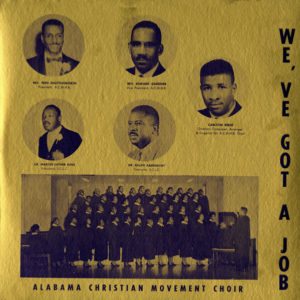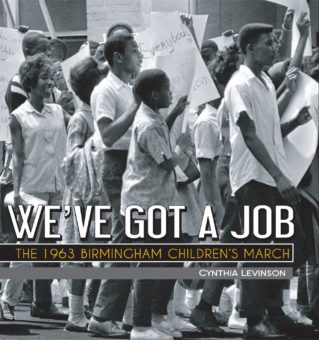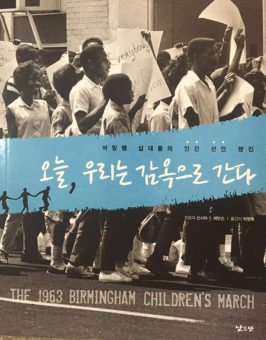Many resources are available for students to research the Children’s March.
Audrey, James, Arnetta, and Wash told their stories in video interviews
- Growing Up Black in Segregated Birmingham
- How Black Youngsters Became Aware of the Civil Rights Movement in Birmingham
- How Black Youngsters Decided to Protest Segregation
- Confronting the Birmingham Police
- Birmingham, Alabama, May 2, 1963
- Audrey Faye Hendricks, Age 9, Goes to Jail
- The Civil Rights Movement was a Spiritual Movement
- Dr. King Stood for Brotherhood
- Birmingham After Integration in the 1960s
- Sharing Stories About Civil Rights & Encouraging Black Youngsters to Participate in Politics
Primary Source Documents on the Children’s March
- Birmingham’s Segregation Ordinances
- Newspaper articles and headlines
- The Petition for Permit to march requested by Reverend Shuttlesworth
- The Points for Progress that movement activists demanded
- Police Summons for a young “delinquent” marcher
- The Ten Commandments of Nonviolence that Arnetta signed. (And, please watch my video about nonviolence.)
- “Which Side Are You On?” flier
- Kids in Birmingham 1963 is a terrific, continually updated source of information and stories.
“We’ve Got a Job”: The Song
Composed by Carlton Reece. Sung by the Birmingham Movement Choir. (Used with permission, not to be duplicated or transferred)

Other Sources of Information
- The Youngest Marcher: The Story of Audrey Faye Hendricks, A Young Civil Rights Activist
- Peachtree Publisher’s We’ve Got a Job website
- PBS video about the Children’s March
- Presentation by Cynthia Levinson on We’ve Got a Job at the Library of Congress
- Birmingham Civil Rights Institute
- Zinn Education Project
- International Civil Rights Center & Museum
- National Civil Rights Museum
- Smithsonian Folkways
- Southern Poverty Law Center
- The Martin Luther King, Jr. Research and Education Institute
- The King Center
- “When the Children Marched,” a documentary produced by high school student Alfredo Pratico for National History Day.
How and Why I Researched and Wrote We’ve Got a Job
- Video: How I Researched We’ve Got a Job
- Interviews include YALSA’s The Hub, Kirkus Reviews, the Library of Congress, and Cynsations
Note to students: You are welcome to contact me with further questions—AFTER you have read We’ve Got a Job: The 1963 Birmingham Children’s March and searched all of the above sites. I am happy to respond to questions to which the answers are not available here.

Learn More:
Resources for Teachers Resources for Kids Awards ReviewsBuy Now:
BookShop Indiebound Barnes & Noble Amazon.com First Book Kindle
